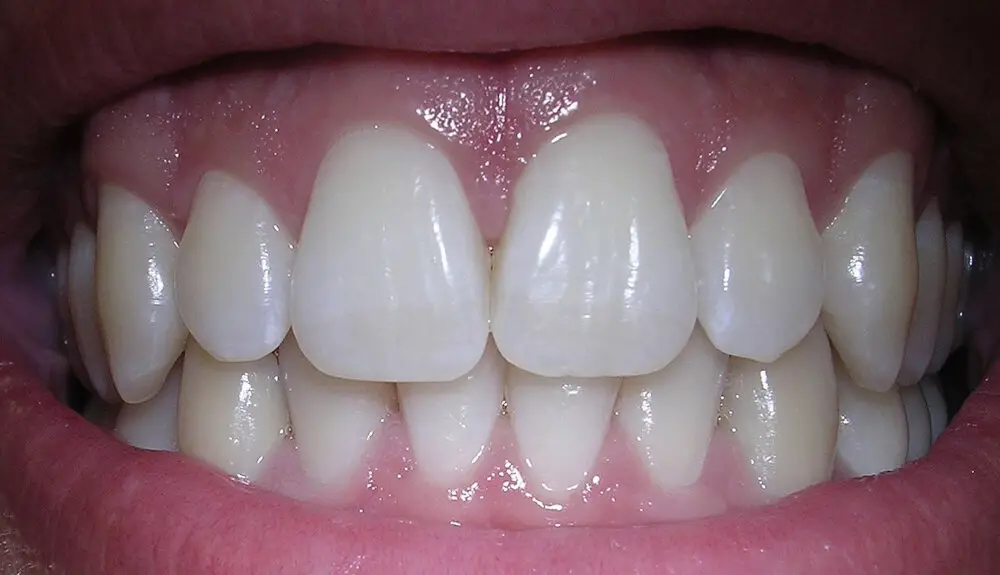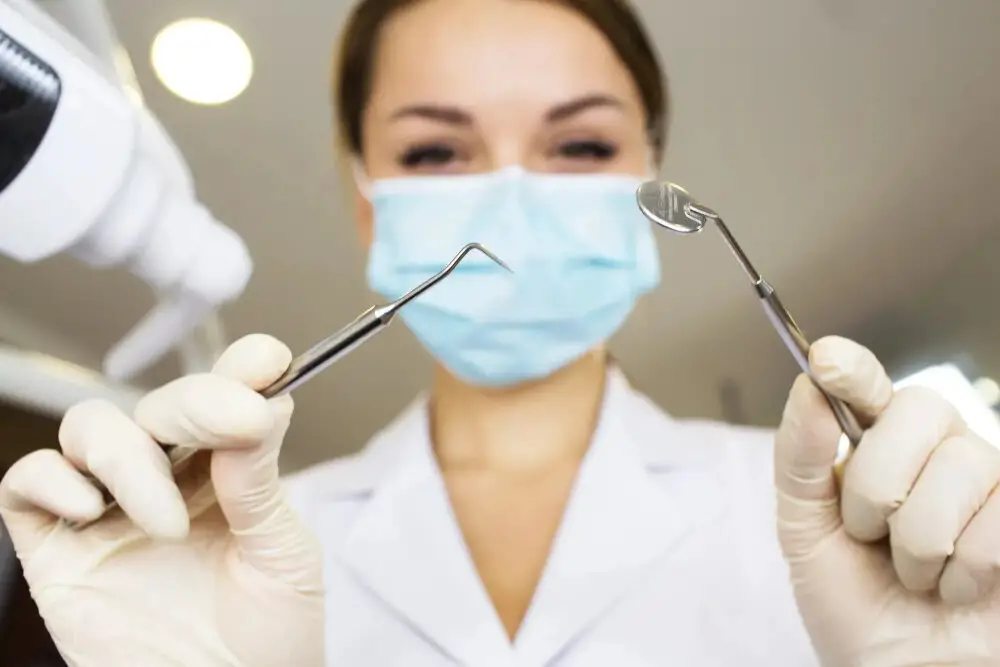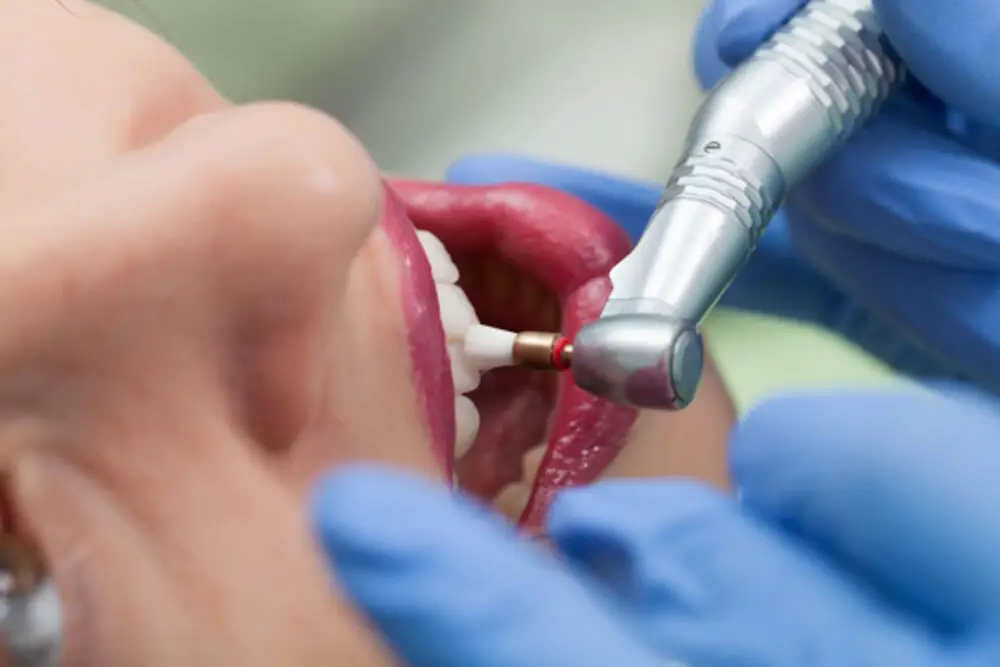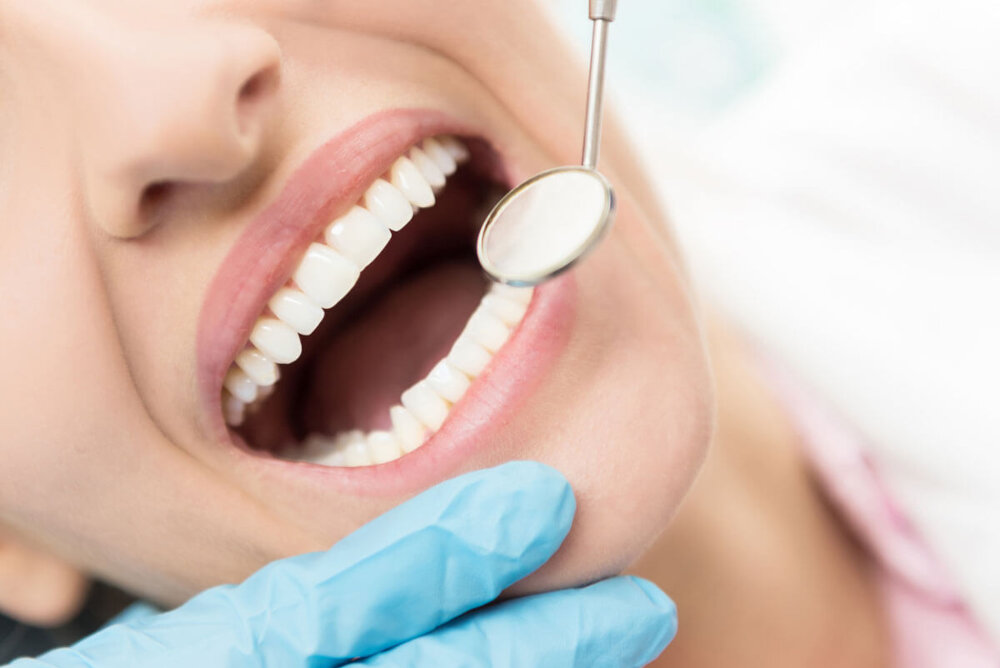Risks of Not Removing Wisdom Teeth: Potential Complications and LongTerm Effects

Wisdom teeth removal is a common procedure that many people undergo in their late teenage years or early adulthood. These molars are the last set of teeth to emerge, and they often cause pain or discomfort due to lack of space in the mouth. However, some individuals may choose not to have their wisdom teeth removed, either due to financial constraints or fear of surgery. While this decision may seem harmless, it can lead to a variety of potential complications and long-term effects that can significantly impact an individual’s oral health. One of the most significant risks of not removing wisdom teeth is the development of oral infections. When wisdom teeth do not have enough room to emerge fully, they can become impacted, meaning they are stuck beneath the gum line. This can create a pocket of bacteria that can cause an infection, leading to pain, swelling, and even fever. If left untreated, these infections can spread to other areas of the mouth and even the bloodstream, leading to more severe health problems. Additionally, impacted wisdom teeth can cause damage to surrounding teeth, causing decay, gum disease, and even tooth loss. Therefore, it is essential to consider the potential complications and long-term effects of not removing wisdom teeth to make an informed decision about your oral health.
Wisdom teeth, also known as third molars, are the last set of molars that emerge in the back of the mouth. These teeth typically appear between the ages of 17 and 25, although some people may have them earlier or later. While wisdom teeth can be helpful for chewing and breaking down food, they can also cause problems if they do not have enough space to grow properly. These teeth can become impacted, meaning they are unable to emerge fully, which can lead to pain, infection, and even damage to surrounding teeth and bone. In some cases, it may be necessary to remove the wisdom teeth to prevent these potential complications and long-term effects.
The removal of wisdom teeth is an essential procedure that prevents potential complications and long-term effects. Wisdom teeth, also known as third molars, commonly grow during the late teenage years or early adulthood. These teeth can cause overcrowding, misalignment, and other dental problems when they don’t have enough space to grow properly. If left untreated, impacted wisdom teeth can lead to infection, tooth decay, gum disease, and even damage to adjacent teeth. Wisdom teeth removal is a preventive measure that ensures optimal dental health and prevents future dental issues. It’s a relatively simple procedure that can be done under local anesthesia, and the recovery time is short. Therefore, it’s crucial to consult a dentist and schedule a wisdom teeth removal procedure to maintain overall dental health.
Impacted Wisdom Teeth

Impacted wisdom teeth refer to third molars that do not have enough space to emerge normally in the mouth. This can cause a variety of problems, including pain, infection, and damage to adjacent teeth. When left untreated, impacted wisdom teeth can lead to significant long-term health complications. In some cases, the impacted tooth may become infected or lead to the formation of a cyst that can damage the jawbone. Additionally, impacted wisdom teeth can push against other teeth, causing shifting and misalignment that can lead to bite problems and difficulty chewing. It is important to note that impacted wisdom teeth can also contribute to the development of gum disease and tooth decay. This is because the partially emerged tooth can create a hard-to-reach area that is difficult to clean properly. Over time, bacteria can accumulate in this area, leading to inflammation and infection. As gum disease progresses, it can cause the gums to recede, exposing the roots of nearby teeth and potentially leading to tooth loss. Therefore, it is crucial to have impacted wisdom teeth evaluated by a dental professional to determine if they need to be removed to prevent these long-term complications.
Impacted wisdom teeth are the third molars that do not have enough space to emerge or develop properly in the mouth. This dental condition occurs when the tooth is partially or completely trapped beneath the gum line, causing it to grow in an abnormal direction or angle. Impacted wisdom teeth can lead to various dental problems, including pain, swelling, infection, and damage to surrounding teeth or bone. If left untreated, impacted wisdom teeth can cause long-term complications, such as gum disease, decay, cysts, and tumors. Therefore, it is essential to consult with a dental professional to evaluate the need for wisdom teeth removal and prevent potential risks.
Impacted wisdom teeth can cause various symptoms and signs, including pain, swelling, and tenderness in the gums and jaw. Some people may also experience difficulty opening their mouth, bad breath, and a foul taste in their mouth. In some cases, impacted wisdom teeth can lead to infections, which can result in fever and swollen lymph nodes in the neck. Additionally, impacted wisdom teeth can cause damage to nearby teeth and gums, causing decay, crowding, and even cysts or tumors. If you experience any of these symptoms, it is essential to seek dental care promptly to prevent further complications.
The risks of infection and decay are significant consequences of not removing wisdom teeth. These teeth are located at the back of the mouth, making them difficult to clean properly. This can lead to a buildup of bacteria, plaque, and food particles, which can cause infection and decay in the surrounding teeth and gums. Additionally, because wisdom teeth are often impacted or partially erupted, they can create pockets in the gums that are breeding grounds for bacteria. Over time, this can lead to serious infections that can spread to other parts of the body, such as the jawbone or bloodstream. If left untreated, these infections can be life-threatening. Therefore, it is crucial to remove wisdom teeth to prevent the risk of infection and decay.
Crowding and Misalignment

Crowding and misalignment are two of the most common dental issues that can arise when wisdom teeth are not removed. Wisdom teeth, also known as third molars, are the last set of teeth to develop and often erupt between the ages of 17 and 25. However, many people do not have enough room in their mouths to accommodate these additional teeth, which can lead to crowding and misalignment of the surrounding teeth. This can result in a host of issues, including difficulty brushing and flossing, gum disease, tooth decay, and even tooth loss. Furthermore, misaligned teeth can cause discomfort and pain, affecting a person’s overall quality of life. In addition to causing dental problems, crowding and misalignment can also have an impact on a person’s appearance. When teeth are misaligned, it can result in an uneven smile, which can affect a person’s self-esteem and confidence. Crowded teeth can also make it difficult to speak clearly and chew properly, which can impact a person’s overall health and well-being. Therefore, it is crucial to address these issues by having wisdom teeth removed if they are causing crowding or misalignment. Doing so can help prevent future dental problems and improve a person’s overall quality of life.
Crowding refers to the lack of space in the mouth for teeth to grow properly. When the wisdom teeth (third molars) start erupting, they can cause crowding as they push against the adjacent teeth, leading to misalignment. Misalignment refers to the improper positioning of teeth, which can cause bite problems, difficulty in chewing and speaking, and may also lead to gum disease and tooth decay. The misalignment caused by wisdom teeth can also cause aesthetic concerns, affecting one’s confidence and self-esteem. Therefore, it is crucial to remove the wisdom teeth to prevent these complications and long-term effects, allowing for proper alignment and spacing of teeth in the mouth.
Wisdom teeth, also known as third molars, are the last set of teeth to emerge in the mouth. In many cases, there is not enough space in the jaw to accommodate these teeth, which can cause crowding and misalignment of the surrounding teeth. When wisdom teeth begin to erupt, they can push the neighboring teeth out of position, causing them to shift and overlap. This can lead to a range of dental problems, including crooked teeth, bite issues, and difficulty cleaning between teeth. In severe cases, wisdom teeth can even damage adjacent teeth, leading to decay, infection, and gum disease. For these reasons, it is often recommended that wisdom teeth be removed to prevent these potential complications and long-term effects.
The presence of wisdom teeth can lead to various complications and long-term effects, including bite problems and jaw pain. As the wisdom teeth grow, they can exert pressure on the surrounding teeth, causing misalignment and bite issues. This can lead to difficulty chewing, speaking, and even breathing. Additionally, impacted wisdom teeth can cause inflammation and pain in the jaw, leading to discomfort and difficulty opening the mouth. If left untreated, these issues can worsen over time, leading to more severe pain and potential damage to nearby teeth and tissues. Therefore, it is crucial to consider the risks of not removing wisdom teeth and take appropriate action to prevent these complications.
Cysts and Tumors

Cysts and tumors can develop around impacted wisdom teeth, causing significant discomfort and pain. Cysts are fluid-filled sacs that form around the tooth and can lead to bone destruction if left untreated. Tumors, on the other hand, can be benign or malignant and can cause serious health issues if not removed. In some cases, they can even spread to other parts of the body. The development of cysts and tumors is a common complication associated with impacted wisdom teeth, and it is important to have them removed as soon as possible to prevent further damage. The removal of impacted wisdom teeth can significantly reduce the risk of developing cysts and tumors. When wisdom teeth are left untreated, they can continue to grow and push against the surrounding teeth, leading to the formation of cysts and tumors. Removing the teeth early on can prevent this from happening and reduce the risk of serious health issues. It is important to visit a dentist regularly to monitor the growth and development of wisdom teeth and to address any issues promptly. With proper care and attention, the risks associated with impacted wisdom teeth can be minimized, and patients can maintain healthy teeth and gums for years to come.
A cyst is a sac-like structure that can form in any part of the body, including the mouth. In the case of wisdom teeth, cysts can form around the tooth if it is impacted or not fully erupted. These cysts can cause damage to surrounding teeth and bone, and in rare cases, can even become cancerous. On the other hand, a tumor is an abnormal growth of cells that can be either benign or malignant. In the case of wisdom teeth, tumors can form in the surrounding tissue if there is prolonged irritation or inflammation. Malignant tumors can be life-threatening and may require aggressive treatment such as surgery, radiation, or chemotherapy. It is important to have regular dental check-ups and to address any issues with wisdom teeth as soon as possible to prevent the development of cysts or tumors.
Wisdom teeth, also known as third molars, are located at the back of the mouth and typically erupt between the ages of 17 and 25. However, sometimes these teeth can become impacted, meaning they do not fully emerge from the gums. When this happens, it can create a small flap of tissue that can trap food and bacteria, leading to infection. Additionally, impacted wisdom teeth can cause cysts or tumors to form around the tooth, which can damage nearby teeth and bone. These growths can also become malignant and lead to more serious health complications. Therefore, it is important to have wisdom teeth removed if they are causing any issues or have the potential to cause complications in the future.
When it comes to wisdom teeth removal, there are potential risks involved that patients should be aware of. One of the most significant risks is nerve damage, which can occur when the wisdom teeth are located near the nerves in the jaw. This can lead to numbness or tingling in the tongue, lips, or cheeks, which can be temporary or permanent. Another risk is bone loss, which can occur when the wisdom teeth are impacted or partially erupted. This can lead to gum disease, tooth decay, and even tooth loss in severe cases. It is important to discuss these risks with your dentist or oral surgeon before deciding on whether or not to have your wisdom teeth removed.
LongTerm Health Effects

Long-term health effects are a significant concern for individuals who choose not to remove their wisdom teeth. The wisdom teeth, also known as third molars, are the last set of teeth to develop in the human mouth. In many cases, these teeth do not have enough space to grow properly, which can cause a variety of issues. If left untreated, impacted wisdom teeth can lead to serious oral health problems, including gum disease, tooth decay, and infection. These conditions can cause pain, swelling, and discomfort, making it difficult to eat, speak, and perform daily activities. Furthermore, impacted wisdom teeth can cause more severe complications, such as damage to the surrounding teeth, nerves, and jawbone. As the wisdom teeth grow, they can push against the adjacent teeth, causing misalignment and bite problems. Additionally, impacted wisdom teeth can damage the nerves in the jaw, leading to numbness, tingling, and even paralysis. In rare cases, impacted wisdom teeth can also cause cysts and tumors, which can be life-threatening if left untreated. Therefore, it is crucial to remove impacted wisdom teeth to prevent long-term health effects and ensure optimal oral health.
Maintaining good oral health is crucial for overall health and well-being. Poor oral hygiene can lead to a variety of health problems, such as gum disease, tooth decay, and infections. Moreover, research has shown that there is a strong link between oral health and systemic health, meaning that problems in the mouth can affect other parts of the body as well. For example, untreated gum disease has been linked to an increased risk of heart disease, stroke, and diabetes. Therefore, it is essential to take good care of your teeth and gums by practicing proper oral hygiene, visiting the dentist regularly, and addressing any oral health issues promptly to minimize the risk of long-term complications.
Ignoring the removal of wisdom teeth can lead to various long-term health complications. One of the most common issues is the development of gum disease, which can cause swelling, tenderness, and infection. Over time, gum disease can result in tooth decay and even tooth loss. Additionally, impacted wisdom teeth can lead to the formation of cysts and tumors, which can damage the surrounding teeth and bones. In some cases, these growths may require surgery to remove. Moreover, wisdom teeth can cause overcrowding in the mouth, leading to misalignment of teeth and bite problems. This can cause significant discomfort and pain, as well as difficulty in chewing and speaking. Therefore, it is crucial to remove wisdom teeth to prevent potential long-term health effects.
Studies have shown that not removing wisdom teeth can increase the risk of several health issues, including cardiovascular disease, diabetes, and other systemic problems. This is because impacted wisdom teeth can lead to chronic inflammation and infection, which can spread throughout the body and contribute to the development of these conditions. In addition, the pressure and crowding caused by wisdom teeth can also lead to misalignment of adjacent teeth, bite problems, and temporomandibular joint (TMJ) disorders, which can cause chronic pain and other complications. Therefore, it is important to consider the potential long-term effects of not removing wisdom teeth and to consult with a dentist or oral surgeon to determine the best course of action for your individual needs and health.
Early wisdom teeth removal is crucial for preventing potential complications and long-term effects. Delaying the procedure can lead to various problems such as gum disease, infection, and even tooth decay. Wisdom teeth can grow in an awkward angle and cause overcrowding, leading to discomfort and pain. Furthermore, the longer you wait to remove these teeth, the more complex the procedure can become, potentially leading to more significant complications. Early removal not only prevents these issues but also promotes faster healing and recovery. It is essential to consult with a dental professional and schedule an appointment as soon as possible to prevent these complications and ensure optimal oral health.
Wisdom teeth, also known as third molars, are the last set of teeth to emerge in your mouth. If there is not enough space in your jaw to accommodate these teeth, they can become impacted, leading to several oral health problems. Leaving impacted wisdom teeth untreated can cause gum infections, tooth decay, cysts, and tumors. Additionally, impacted wisdom teeth can put pressure on the surrounding teeth, leading to misalignment and crowding. In some cases, impacted wisdom teeth may also cause sinus problems and difficulty opening the mouth. Therefore, it is essential to have your wisdom teeth evaluated by a dentist or oral surgeon and removed if necessary to avoid these potential complications and long-term effects.
Consultation with a dental professional is a crucial step when considering the removal of wisdom teeth. A qualified dentist or oral surgeon can assess the situation, evaluate the potential risks, and recommend the best course of action. They can also provide information about the procedure, including the anesthesia options, the expected recovery time, and any potential complications. It is essential to seek advice from a dental professional, as leaving impacted wisdom teeth untreated can lead to serious long-term effects. These can include infections, cysts, damage to adjacent teeth, and even the development of tumors. Therefore, it is crucial to consult with a dental professional to make an informed decision about the removal of wisdom teeth.
Conclusion

In conclusion, neglecting the removal of wisdom teeth can lead to a plethora of potential complications and long-term effects. Ignoring the presence of these teeth can result in tooth decay, gum disease, cysts, infections, and damage to adjacent teeth. Delaying their extraction may also increase the risk of nerve damage and jawbone deterioration. It is crucial to consult with a dental professional and discuss the best course of action for the removal of wisdom teeth. In the long run, taking proactive measures to remove these teeth can prevent further oral health issues and improve overall well-being.







